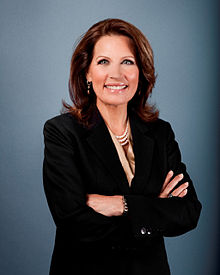With Senate Republicans voting en bloc to block President Barack Obama's jobs bill -- and with the Republican presidential contenders all vowing to slash government even more -- it is clear that Election 2012 will turn on whether U.S. voters want to double down on "free-market" economics or decide that government action is crucial to address the nation's ills.
It also will be a test of whether the Right's potent propaganda infrastructure can continue to rally millions of Americans, especially working- and middle-class white men, to the notion that their "liberties" depend on crippling the federal government and giving free rein to the corporations and the rich.
For three decades now, the U.S. public has been inundated with the Right's flood of anti-government messaging -- persuading a large swath of middle America that "freedom" means making themselves modern-day serfs to a new economic aristocracy operating without rules imposed by government.
This propaganda has obscured for many the devastating consequences of these right-wing economics theories. Not only have the financial rewards flowed overwhelmingly to the top over the past several decades, but average Americans are experiencing sharp declines in their standards of living.
For instance, since the Great Recession officially started in December 2007, median income in the United States has fallen 9.8 percent -- and by more than 10 percent since 2000 -- according to a study by two former Census Bureau officials. Yet, the Republicans are demanding more reliance on the "free market" as the cure-all for what ails America.
Commenting on Tuesday's night's Republican presidential debate, the Washington Post's Ezra Klein noted that the eight participants were united "in their diagnoses of America's economic woes: It's the government's fault. ...
"If the problem is government, then it stands to reason that the solution is less government. A lot less. And the discussion, at times, took the form of a game of one-upmanship over just how much less government the candidate would promise."
Rep. Michele Bachmann, R-Minnesota, boasted that she had introduced a bill to repeal the mild Wall Street reforms sponsored by Sen. Chris Dodd and Rep. Barney Frank after the financial crash of 2008. Rep. Ron Paul, R-Texas, upped the ante by calling for an end to the Sarbanes-Oxley reforms, which were enacted after the Internet bubble burst and require honest reports from publicly traded companies.
Former House Speaker Newt Gingrich suggested that those repeal initiatives were too mild and that sterner action was called for. "If you want to put people in jail," he said, "you ought to start with Barney Frank and Chris Dodd."
Collectively, the eight candidates' various economic proposals -- including eliminating everything from the Federal Reserve and government-backed housing lenders to deductions for mortgage interest and health insurance costs -- would radically alter the U.S. economy, Klein observed. ...
"The housing sector, which is already weak, would probably freeze. The financial markets, which depend heavily on the central bank's management of the economy, would be in uncharted territory."The tax code would be completely different. Businesses would no longer be able to offer health care to their employees without paying taxes on it, which would kick the struts out from under the employer-based health-care market that provides insurance to more than 150 million Americans."
Government's Role
This frenzy of government-slashing promises from Republican presidential hopefuls comes even as leaders of industry acknowledge the importance of government investments in research and development.
On CBS's "60 Minutes" last Sunday, General Electric chief executive Jeffrey Immelt said, "this notion that the government has no role has never been true in the history of the United States. You know, really, all of the commercial aviation industry has grown out of defense spending. All of the health-care innovation has grown out of the NIH," the National Institutes of Health.
Immelt could have added many other examples of government priming the pump for businesses, including key breakthroughs for the computer industry from the space program, the Internet created by Pentagon engineers, and America's transportation and educational systems -- once the envy of the world.
However, since Ronald Reagan's victory in 1980, the American people have been fed a steady diet of anti-government and anti-tax rhetoric. It was Reagan who famously declared in his first inaugural address that "government is the problem." In the three decades since, his ideology has been taken to even greater extremes.
Meanwhile, the American Left has offered only a trickle of arguments defending the role of government in making the economy more equitable.
(Note: You can view every article as one long page if you sign up as an Advocate Member, or higher).






